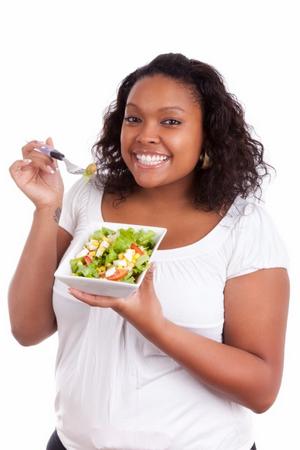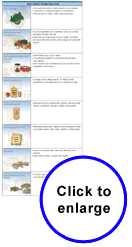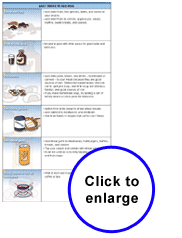MODULE 5
A Healthy Diet
Test Your Knowledge
|
|
The following exercise will help you understand cravings and aversions that you may experience during pregnancy and to find possible solutions.
Click on the option button which corresponds to the correct answer and verify your answer by clicking on the "Check" button.
|
1 |
If I feel like eating chocolate, it is because my body needs it. |
|
2 |
If I crave something that is good for me and my baby, I can go ahead and enjoy. |
|
3 |
If I crave for less nutritious foods like chips, I can eat as much as I want. |
|
4 |
If the smell of foods cooking makes you feel sick, the only solution is to avoid these foods. |
C. DAILY MEALS
At the beginning of your pregnancy, you may have difficulty remembering everything you should eat when preparing your meals.
In this section, menu examples will help you to choose the foods you need to add to your regular daily meals.

f. Vegetarian Eating
There are different types of vegetarian diets. Certain vegetarians avoid all foods that come from animals. Others eat eggs and dairy products. If you are vegetarian, you can get the nourishment you and your baby need. However, there are a few things that you should know.
To ensure adequate nutrient intake vegetarians can choose either milk or fortified soy beverages and a variety of meats and alternatives such as beans, lentils, eggs, tofu, soy-based meat substitutes, nuts, nut butters and seeds.
As soon as you find out you are pregnant you should speak with your health care provider or a registered dietitian to ensure you are getting all of the nutrients needed.
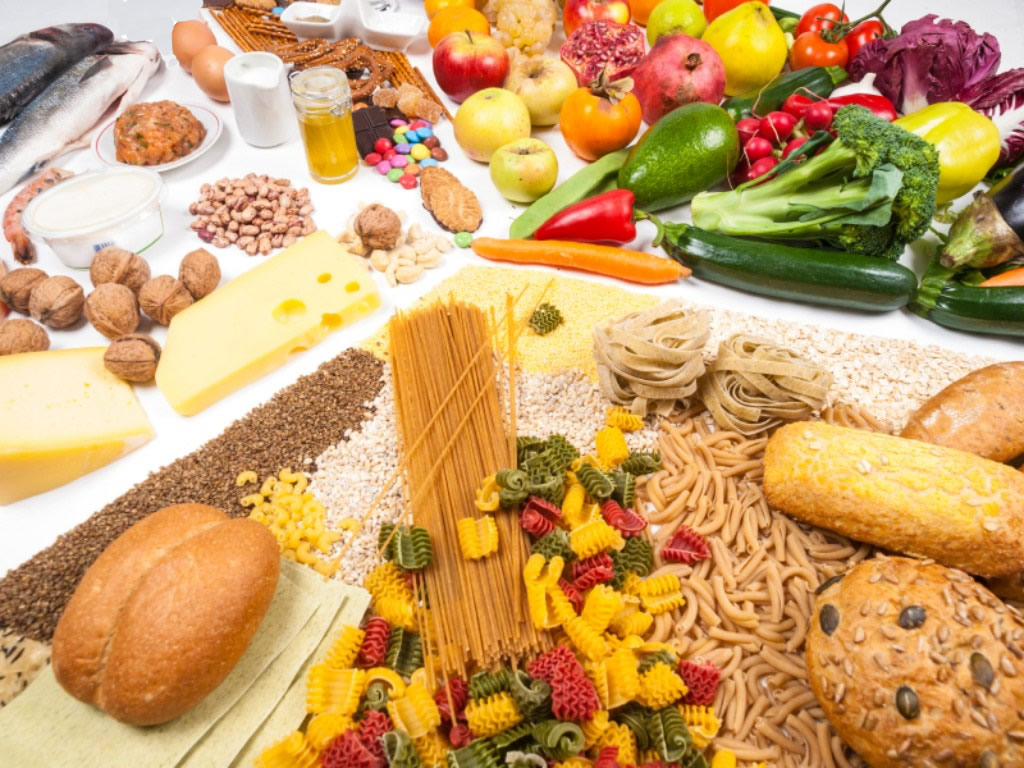
g. Cravings and Aversions
While pregnant, you may find that there are certain foods that you crave. You cannot seem to get enough of them.
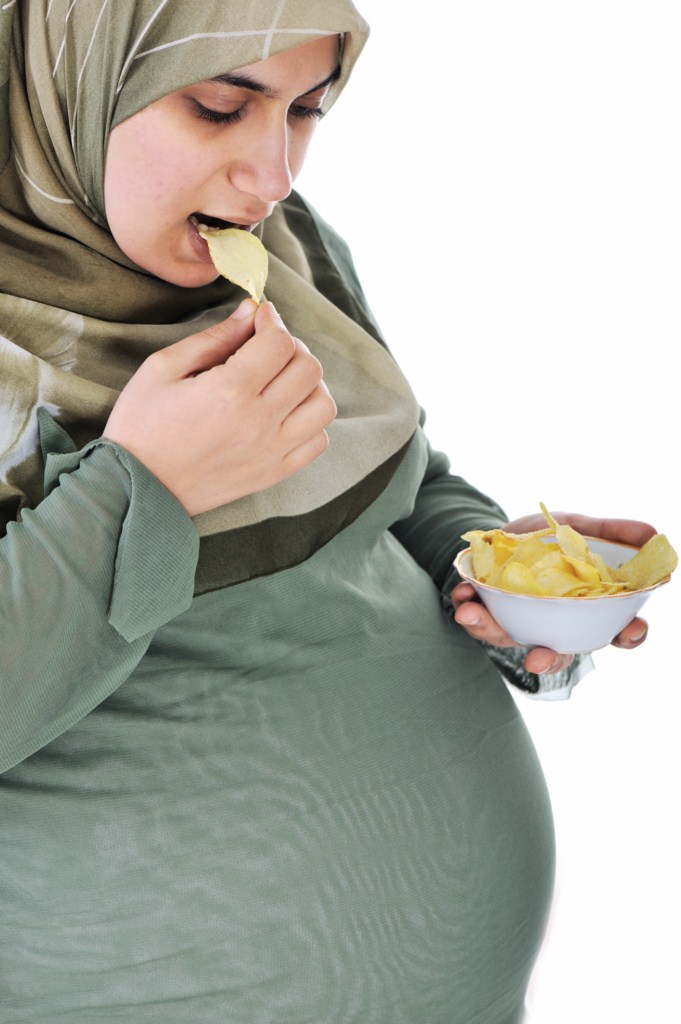
There may be other foods that you have trouble smelling, tasting or looking at. Just thinking about them can make you feel sick.
d. Water
While not part of a food group, water keeps your body healthy.
Water helps regulate your body temperature. It moves vitamins and minerals to where your body needs them and helps to keep your bowels regular. Water prevents constipation by helping the fibre in your food do its job.
During your pregnancy, it is important to drink lots of water . You need eight to ten glasses of liquid every day including water. Drink water instead of pop, fruit punch, or coffee.

If your water comes from a city or town water supply, you can almost be sure that it is safe.
If you get your water from a well, it's important to have it tested. It may contain substances that could affect your health and the health of your baby.
Contact your Public Health office for information about testing your well water.
e. Fibre
"It is always a good idea to choose foods high in fibre."
Constipation is a common problem during pregnancy. Fibre is a natural laxative and will help to prevent constipation. When eating foods high in fibre, be sure to drink lots of fluid to keep the fibre soft.
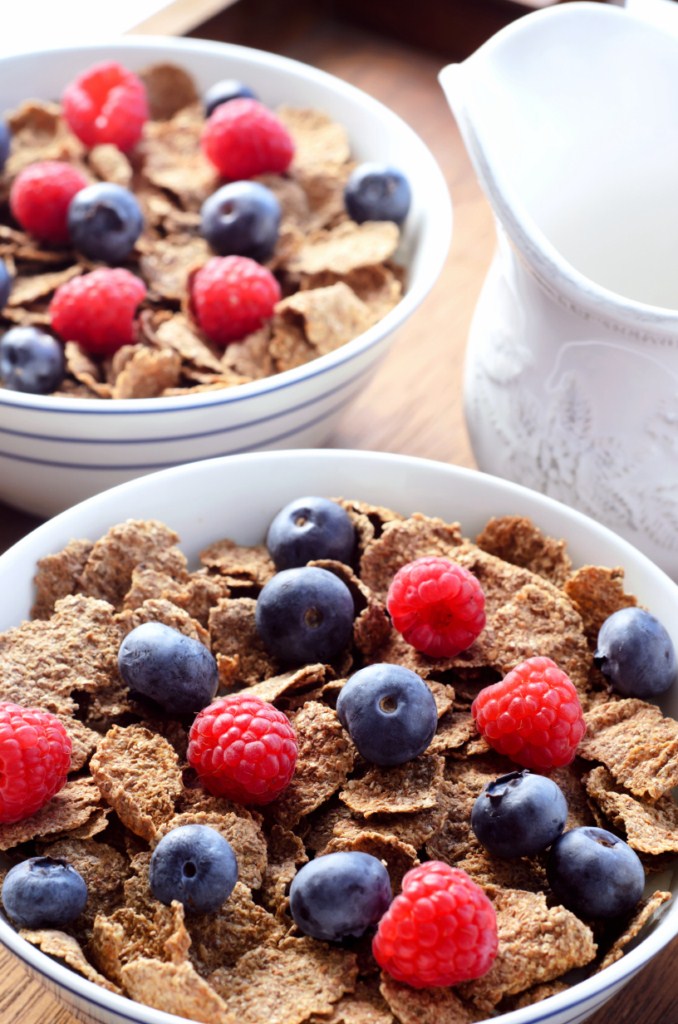
Higher fibre foods include :
- whole grain breads and cereals
- vegetables and fruits
- dried peas, beans, and lentils.
Staying active is also a good way to prevent constipation. Consult Module 2 for more information.
3. Folic Acid
Taking folic acid at least 3 months before you get pregnant and for the entire pregnancy will help prevent neural tube defects such as spina bifida. Your body does not store folic acid so you need to be sure to get enough every day.
It is recommended that all women of childbearing age, (that is from the start of menstruation to the end of menopause):
- eat foods which are good sources of folic acid every day (asparagus, broccoli...).
- take a multi-vitamin containing 0.4mg of folic acid every day (supplements containing more than 1 mg folic acid are not recommended)
The following table features easy tricks to add more folic acid to your food.
Folic acid is destroyed by heat, air, and water. Be sure to keep fruits and vegetables refrigerated. Eat raw fruits and vegetables whenever you can. When you cook fruits and vegetables, use as little water as possible. Try steaming your vegetables instead of boiling them.

c. Vitamin and Mineral Supplements
Many people think that if they take vitamin or mineral supplements they don't have to worry about what they eat. This is not true. Your body needs more than 50 different nutrients every day. No vitamin pill or mineral supplement can give you all these nutrients in the right amounts.
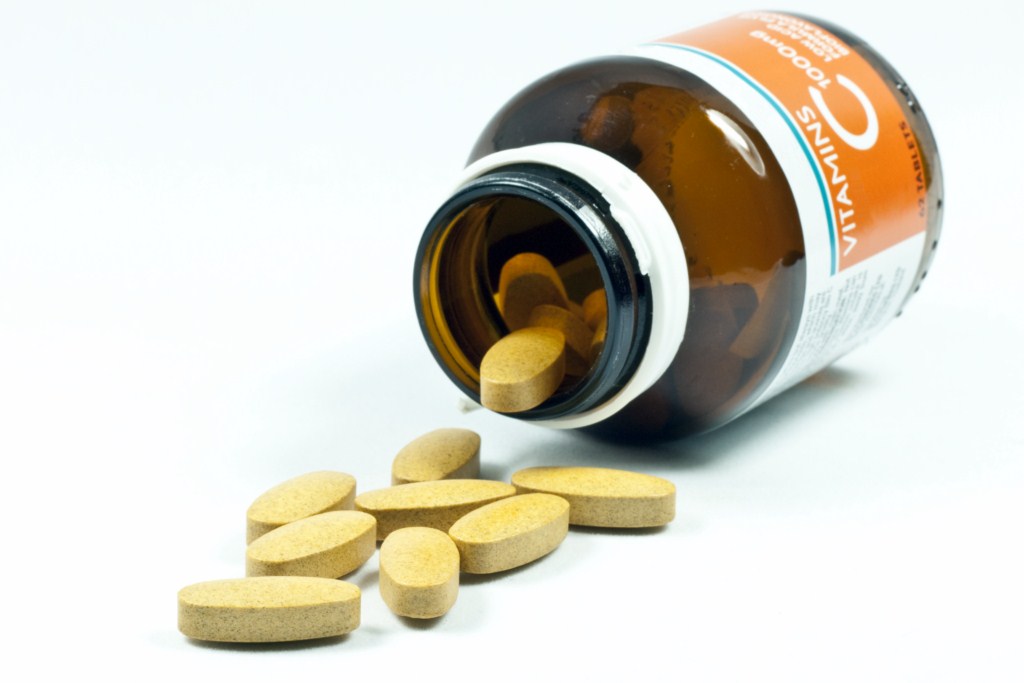
If you are having difficulty meeting your nutritional needs during pregnancy, you may need supplements. Do not take vitamins or any kind of supplement before discussing with your health care provider.
If you need a supplement, think of it as medication. Follow the directions, and keep out of children's reach.
Remember that the best of supplements cannot replace a healthy diet.
2. Iron
Iron is necessary to build red blood cells. During pregnancy you need more iron to allow your baby to develop good reserves of iron which will last him or her for the first four to six months of life.
The following table contains easy tricks to add more Iron to your diet.
Vitamin C helps your body to use the iron in vegetables, fruits, grain products, and legumes. Eat foods rich in Vitamin C at the same time as iron-rich foods.
The main sources of Vitamin C are:
- oranges, grapefruits and their juices
- tomatoes and tomato juice
- cabbage, cauliflower, and broccoli.
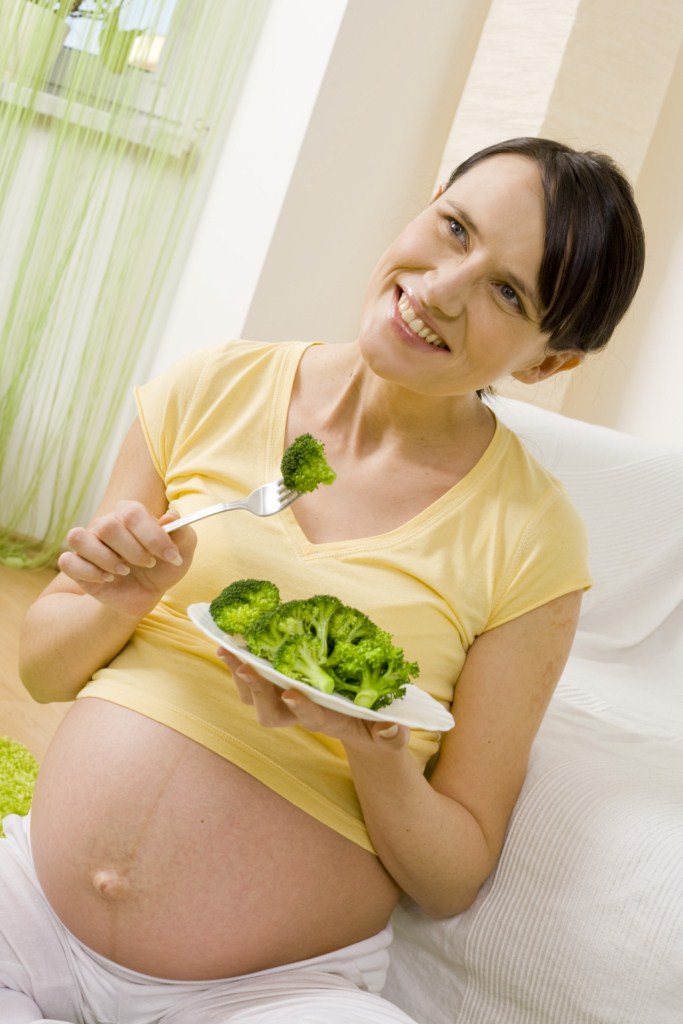
b. Important Vitamins and Minerals
Calcium, Vitamin D, Folic Acid, and Iron are very important for your baby's growth and development. You will need more of these elements than usual during pregnancy. The best way to be sure you are getting enough is to eat a variety of foods every day and follow Canada's Food Guide eat well plate.
